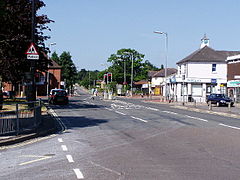Are you ready to unlock the mesmerizing power of your hips through belly dance?
Imagine yourself swaying gracefully, like a shimmering goddess, as the music fills the air. Welcome to the captivating world of belly dancing classes! In these enchanting sessions, you will embark on a journey that celebrates femininity, self-expression, and body confidence. The rhythmic movements of belly dance not only tone your core muscles but also unleash your inner sensuality.
During belly dance lessons, you will learn an array of techniques including shimmies, undulations, and isolations that will enhance your coordination and flexibility. Expert instructors will guide you through each step with patience and precision. As you delve deeper into this ancient art form, you’ll discover various styles of belly dance such as Egyptian, Turkish, and Tribal Fusion. Whether you’re drawn to traditional elegance or modern fusion moves, there’s a style that perfectly suits your unique personality.
So put on something comfortable yet alluring – perhaps a flowy skirt or hip scarf – and get ready to immerse yourself in the magic of belly dancing classes. Let loose, embrace your femininity, and ignite a fire within that will keep burning long after the music stops. Join us for an unforgettable experience!
About Hedge End
| Hedge End | |
|---|---|

The town centre
|
|

Hedge End
Location within Hampshire
|
|
| Population | 20,790 (2011 Census) |
| OS grid reference | SU490128 |
| Civil parish |
|
| District |
|
| Shire county |
|
| Region |
|
| Country | England |
| Sovereign state | United Kingdom |
| Post town | SOUTHAMPTON |
| Postcode district | SO30 |
| Dialling code | 01489 |
| Police | Hampshire and Isle of Wight |
| Fire | Hampshire and Isle of Wight |
| Ambulance | South Central |
| UK Parliament |
|
| Website | Hedge End Town Council |
50°54′49″N 1°18′15″W / 50.9135°N 1.3041°W / 50.9135; -1.3041 |
|
Hedge End is a town and civil parish in Hampshire, England. Situated to the east of the City of Southampton, it adjoins the districts of West stop and Botley. Hedge End lies within the Borough of Eastleigh and is ration of the Southampton Urban Area. The original hamlet developed on Botley Common after 1250 in the same way as it was approved to the men of Botley as common pasture. In 1267, royal charters allowed Botley to Keep an annual fair and a weekly market on the common which eventually became a publicize town.
History
Origins
The Belgae tribe inhabited the Hedge stop area prior to the Roman conquest. A Roman road from Clausentum (a fortified harbour in what is now Bitterne, Southampton) passed through the area on route to Portus Adurni (Portchester Castle) and Noviomagus Reginorum (Chichester). The crossing of the River Itchen at Mansbridge and the crossing of the River Hamble at Botley date to AD932. The road that combined those two river crossings would have followed the approximate route of the unbiased Grange Road. From Mansbridge, it is 4 miles (6.4 km) to the harbor of Southampton and 12 miles (19 km) to Winchester, which was for a time the capital of England. Kings of England owned hunting estate at King’s Copse (originally known as King’s Forest).
Farming at the Manor of Shamblehurst is mentioned in a autograph album dating to 1219. Although this area is within the boundary of liberal Hedge End, the native hamlet of Hedge End first time-honored itself upon Botley Common. This estate was decided to the men of Botley as common pasture in 1250. That area is towards the bottom of the hill that rises taking place to Netley Common and is wealthy with natural streams and springs. Prior to the Erection of Cottages Act 1588, an Englishman could construct his home on common house if he could lift the roof higher than his head and have a fire in the hearth in the middle of sunrise and sunset and claim the address as his home. That procedure and the presence of a honorable water supply would have allowed a few dwellings to become established on Botley Common from 1250 onwards.
In 1267, Royal Charters allowed Botley to Keep an annual fair and a weekly market. It became a make public town. The inhabitants of Botley Common would have found the proximity of that publicize and the mills at Botley and Bursledon to be simply situated.
Source
